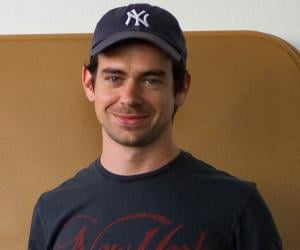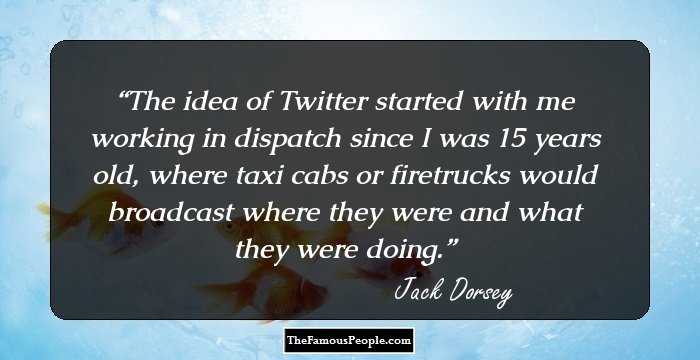
The idea of Twitter started with me working in dispatch since I was 15 years old, where taxi cabs or firetrucks would broadcast where they were and what they were doing.
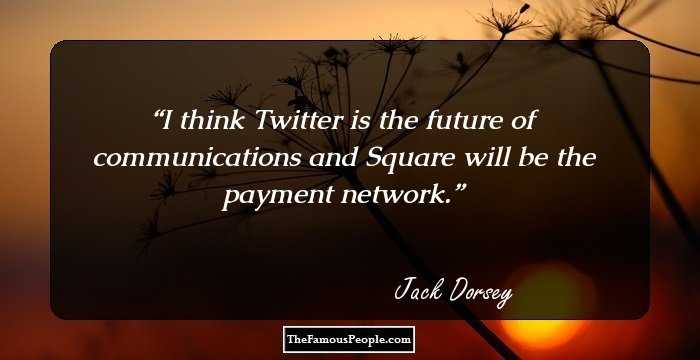
I think Twitter is the future of communications and Square will be the payment network.
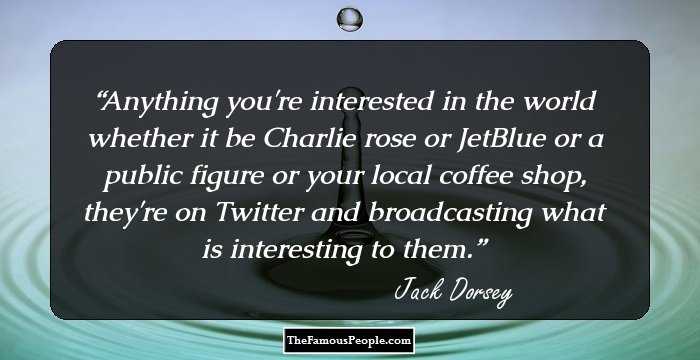
Anything you're interested in the world whether it be Charlie rose or JetBlue or a public figure or your local coffee shop, they're on Twitter and broadcasting what is interesting to them.
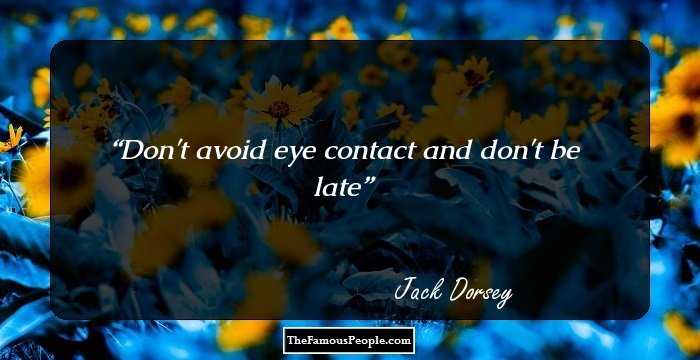
Don't avoid eye contact and don't be late
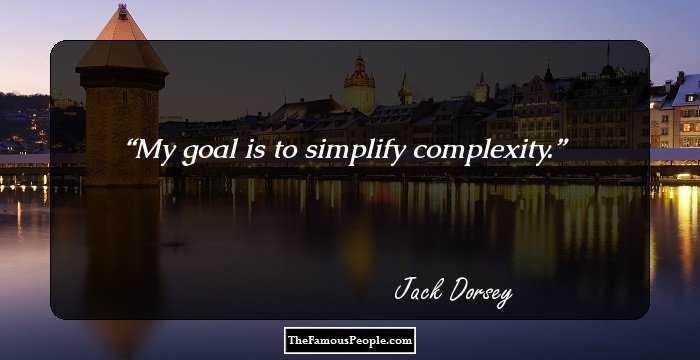
My goal is to simplify complexity.
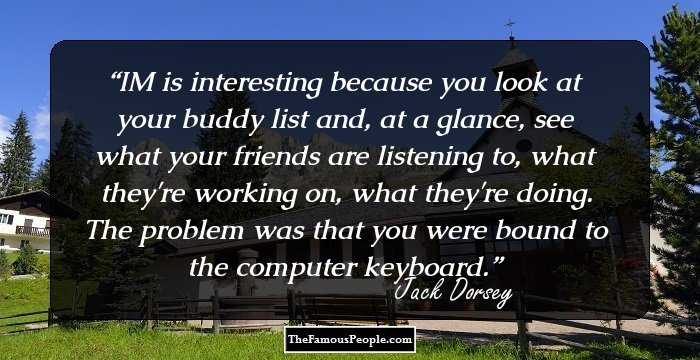
IM is interesting because you look at your buddy list and, at a glance, see what your friends are listening to, what they're working on, what they're doing. The problem was that you were bound to the computer keyboard.
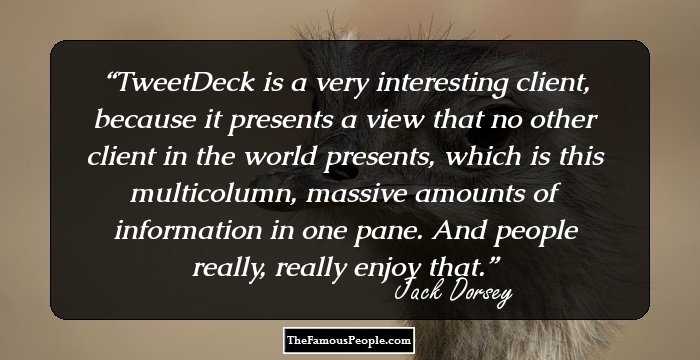
TweetDeck is a very interesting client, because it presents a view that no other client in the world presents, which is this multicolumn, massive amounts of information in one pane. And people really, really enjoy that.
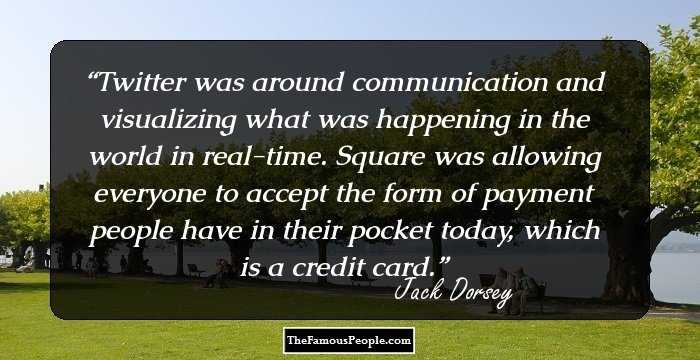
Twitter was around communication and visualizing what was happening in the world in real-time. Square was allowing everyone to accept the form of payment people have in their pocket today, which is a credit card.
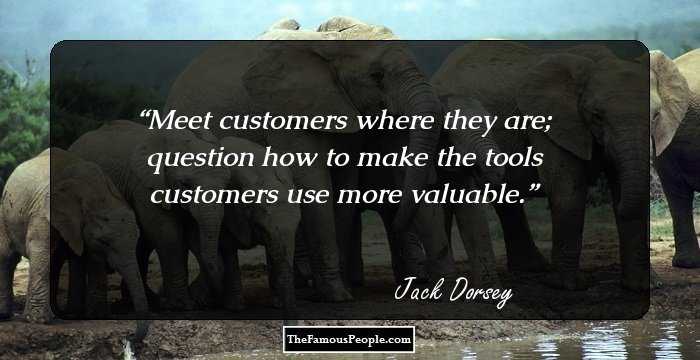
Meet customers where they are; question how to make the tools customers use more valuable.
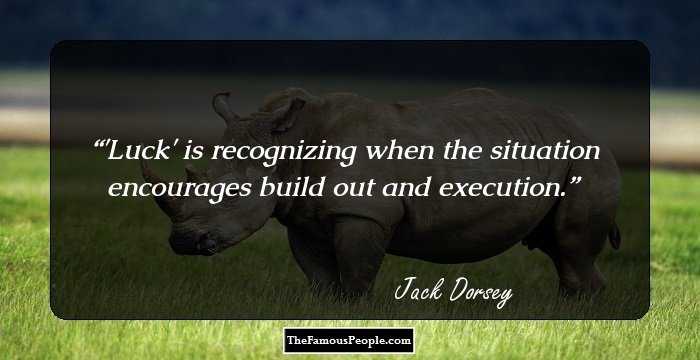
'Luck' is recognizing when the situation encourages build out and execution.
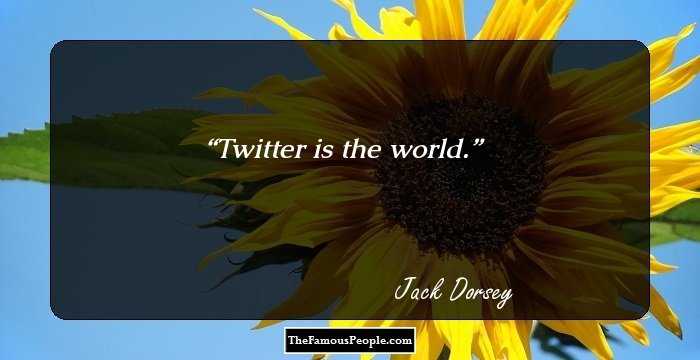
Twitter is the world.
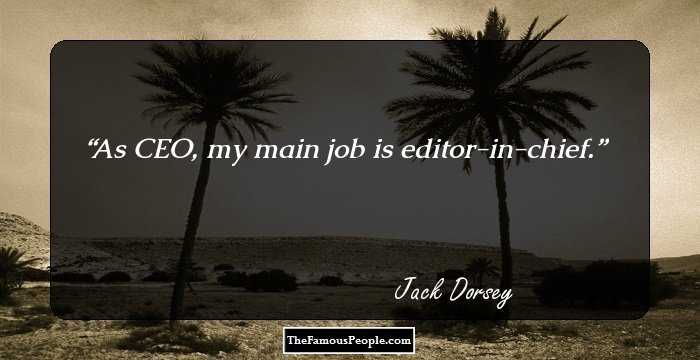
As CEO, my main job is editor-in-chief.
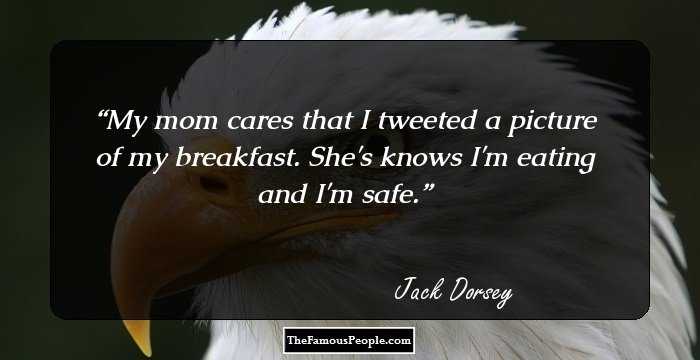
My mom cares that I tweeted a picture of my breakfast. She's knows I'm eating and I'm safe.
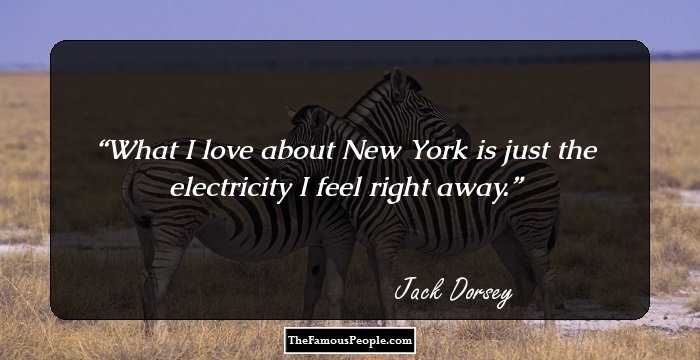
What I love about New York is just the electricity I feel right away.
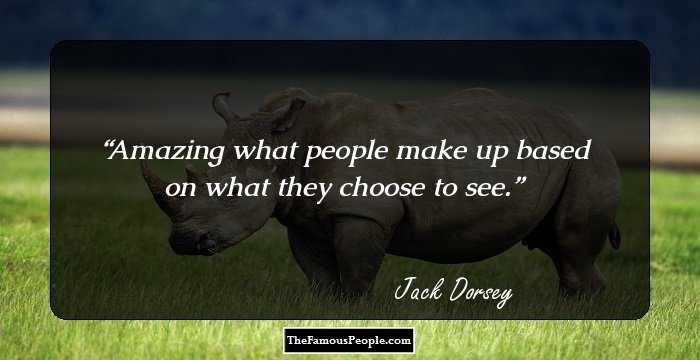
Amazing what people make up based on what they choose to see.
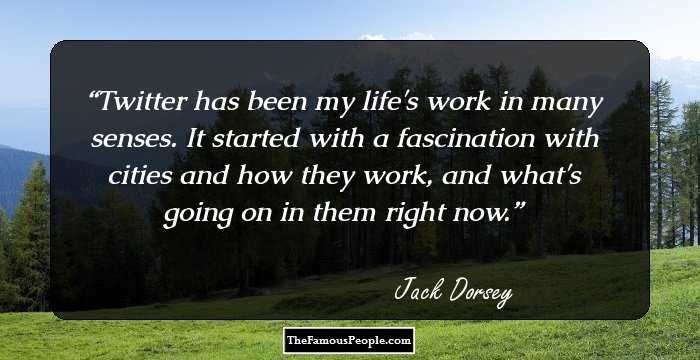
Twitter has been my life's work in many senses. It started with a fascination with cities and how they work, and what's going on in them right now.
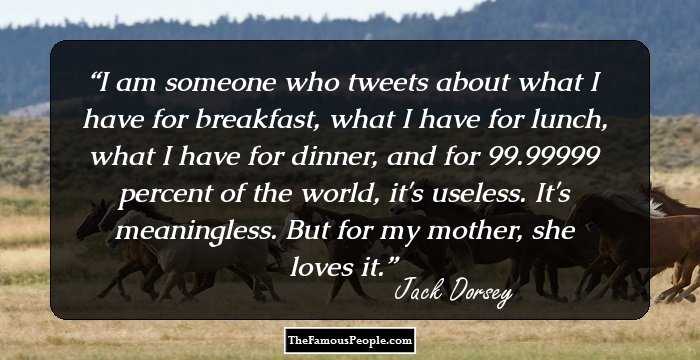
I am someone who tweets about what I have for breakfast, what I have for lunch, what I have for dinner, and for 99.99999 percent of the world, it's useless. It's meaningless. But for my mother, she loves it.
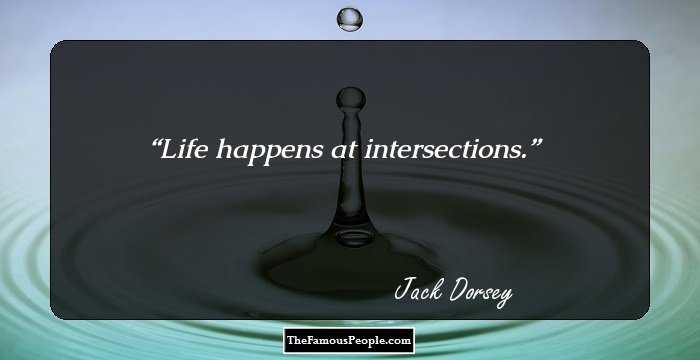
Life happens at intersections.
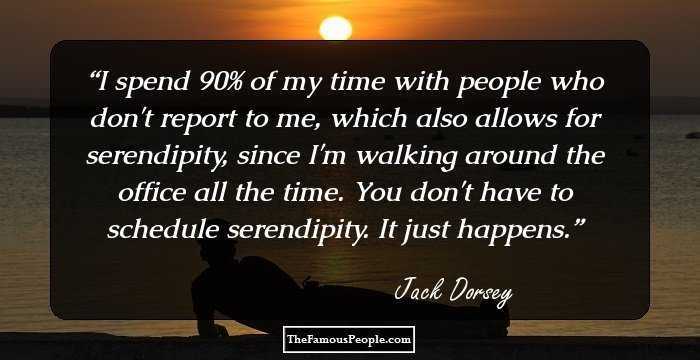
I spend 90% of my time with people who don't report to me, which also allows for serendipity, since I'm walking around the office all the time. You don't have to schedule serendipity. It just happens.
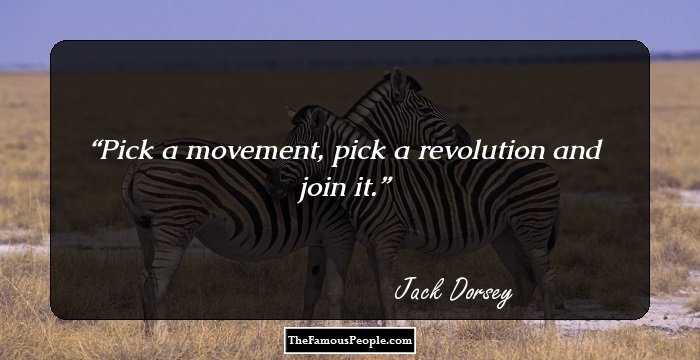
Pick a movement, pick a revolution and join it.

I think Twitter is best when it sparks conversations elsewhere. To use YouTube and Facebook and all the tools we have available to us today to respond and also promote and answer and engage is awesome.
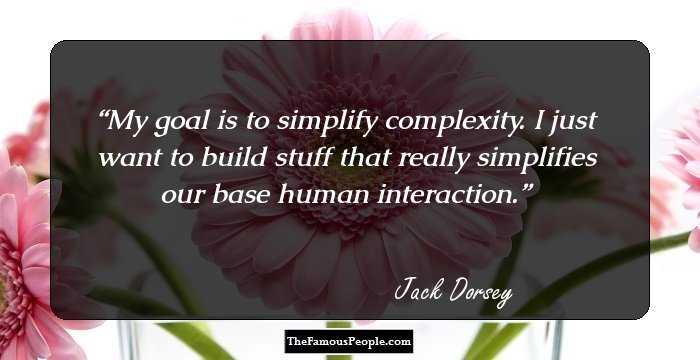
My goal is to simplify complexity. I just want to build stuff that really simplifies our base human interaction.
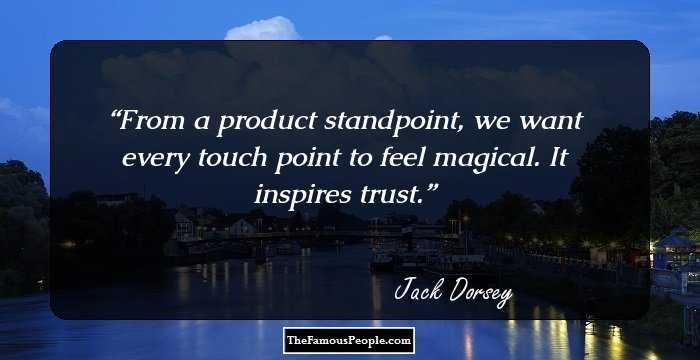
From a product standpoint, we want every touch point to feel magical. It inspires trust.
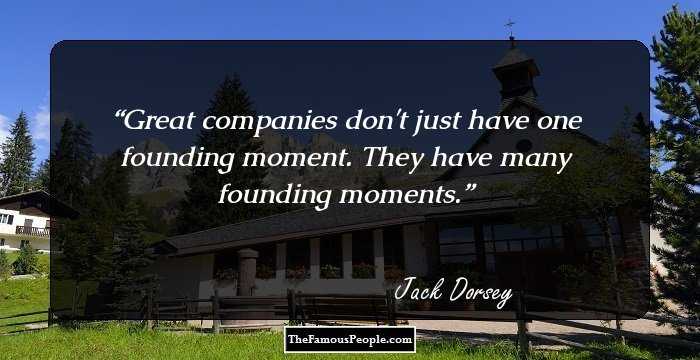
Great companies don't just have one founding moment. They have many founding moments.
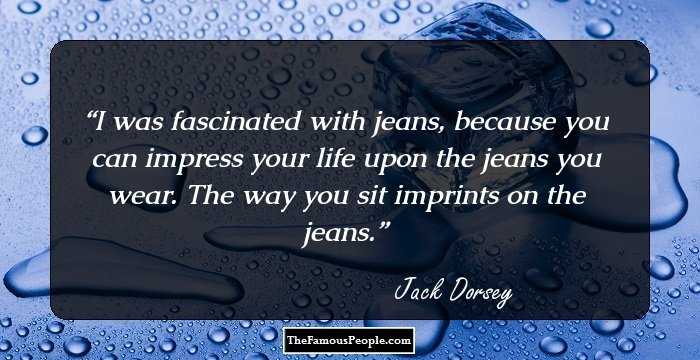
I was fascinated with jeans, because you can impress your life upon the jeans you wear. The way you sit imprints on the jeans.
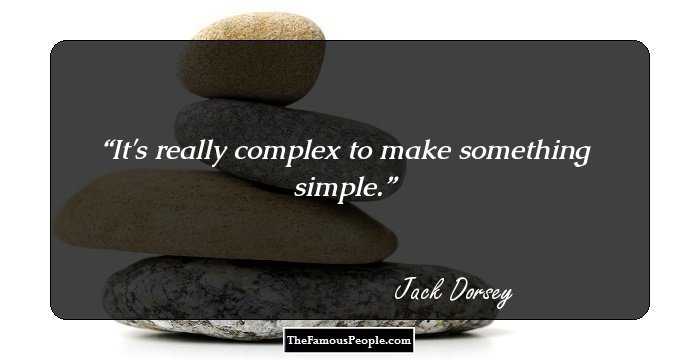
It's really complex to make something simple.
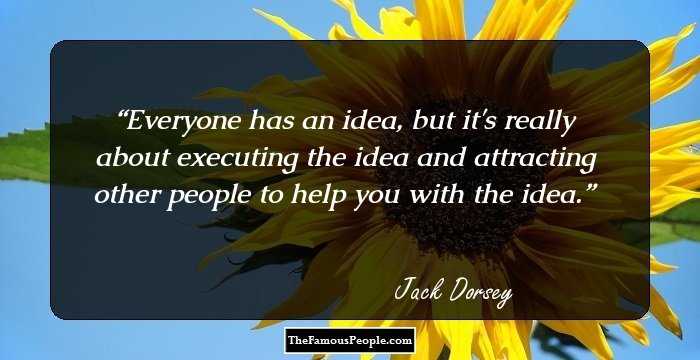
Everyone has an idea, but it's really about executing the idea and attracting other people to help you with the idea.
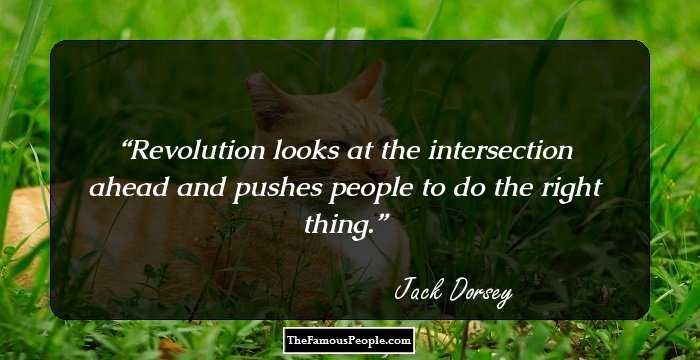
Revolution looks at the intersection ahead and pushes people to do the right thing.
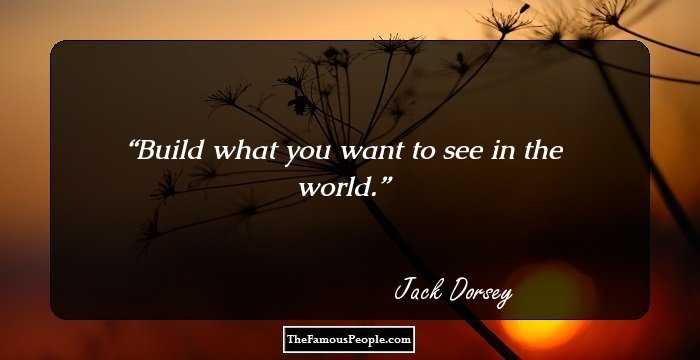
Build what you want to see in the world.
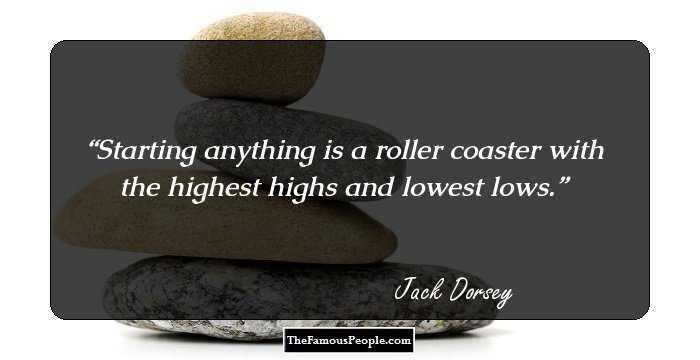
Starting anything is a roller coaster with the highest highs and lowest lows.

